
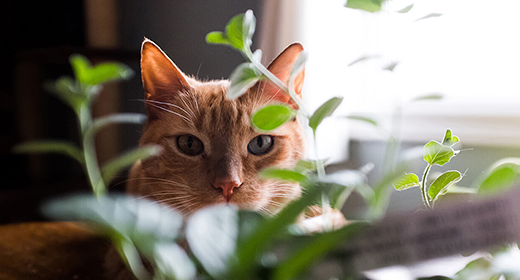
When a cat's body gets sensitive to its environment, it develops allergies. So, if you notice that your cat is feeling unwell and is constantly sneezing or scratching itself, it could be due to cat allergy reactions. These allergens are unpleasant substances that may or may not irritate you, but when your cat's body tries to rid itself of them, it may exhibit a variety of symptoms.
While it’s normal for cats to show different symptoms depending on the allergy, those that affect their breathing are the most serious ones. So, if your cat suffers from breathing issues due to allergies, it can take a life-threatening turn. Sometimes, the itchiness can also cause skin irritation leading your cat to chew on its paws or tail relentlessly.
Fortunately, cat allergy is treatable once the allergen affecting your cat is identified. Therefore, knowing how to detect if your cat has allergies and what’s causing these allergies can help you prevent problems in the future.
The first step toward treating your cat’s allergies is finding out what’s causing them. A visit to the veterinarian is the simplest way to identify your cat’s allergy stimulus.
Causes of cat allergies could be due to several reasons, all of which fall under one of the three categories. These categories are, namely – flea allergy, food allergy, and environmental allergy (atopic dermatitis).
One of the most common cat allergy signs is flea allergies. These allergies are generally caused by flea bites or flea treatment medicine. Excessive itching is the most predominant symptom of this type of allergy. It's likely that your cat is allergic to fleas if you find it scratching or frequently chewing on its fur, especially directly above the tail.
Food allergies in cats can cause vomiting, diarrhea, and even itchy skin, especially around the neck and head. This type of allergic response might cause your cat to shed patches of fur in severe circumstances. In such extreme cases, your vet can help you detect which foods are causing irritation and develop an appropriate diet for your cat.
Environmental allergies may have different triggers, including plants, pollen, and mold. This type of allergy can also be induced by cleaning products, or the fragrance included in some types of cat litter. Another type of environmental allergy is feline atopy. It is commonly known as feline atopic dermatitis, a severe allergic reaction in cats that causes extreme itchiness in their skin. As a result of this condition, your cat may suffer from skin soreness, redness, scabbing, and even hair loss.
Depending on the kind of allergy your cat has, symptoms can range from unpleasant to life-threatening.
Diarrhea is frequently related to staining of the fur around the hind end in some breeds. In normal cats, you can observe some variation in the consistency of their stool. Dietary changes can also cause temporary changes in their stool. But, if you notice frequent semi-liquid or liquid stools for more than two days, you should consult your vet.
There are different causes to why a cat makes a wheezing sound. It could be due to a hairball stuck in its stomach or allergens like pollens, mold, or cigarette smoke. However, this wheezing sound can also be linked to discomfit or stress. Because each cat's triggers are unique, it's critical to be aware of the surroundings and activities in your cat's environment that could be causing stress-related wheezing.

Watery or glossy-looking eyes are other prominent cat allergy signs. While a cat's moist eyes maybe caused by allergens such as mildew dust or household cleaning products, it could also indicate something more serious, such as a bacterial illness or virus.

Itchiness or skin redness in cats is associated with a skin condition called cat dermatitis. When this happens, your cat’s skin becomes swollen, red, and irritated, often with small blisters, as a result of an external agent directly irritating the skin or causing an allergic reaction to it.

If your cat is suffering from moderate allergy symptoms with only limited itching, medicated shampoos or rinses can help.
Anti-itch and anti-inflammatory medicines such as corticosteroids are particularly effective in treating extreme itchiness in cats. When used correctly, they can be quite safe and effective in cats. Consult your vet to identify the best course of action.
Treating your cat with flea preventatives will prevent your cat from being bitten by fleas. Plus, to lessen the chances of your cat being bitten, you should treat your home during the warmer months when fleas are more frequent. In fact, even cats who aren't allergic to fleas should use a flea preventative to avoid tapeworm and other flea-related illnesses.
To figure out which food is causing your cat's allergies, you must first put it on an elimination diet. After that, gradually reintroduce food items until you find the problematic allergen. The top three allergenic protein sources are beef (18%), fish (17%), and chicken (5%). Avoiding these foods will enable your cat's allergic reaction to be less severe.
The most common allergy symptoms in cats are skin reactions, regardless of the cause, and they can appear at any age. Just because your cat didn’t have allergies as a kitten doesn’t mean she won’t have them as an adult. If your cat suffers from any of the following symptoms, take her to the vet for a consultation:
Allergies can vary from cat to cat, so it is important that you work with your vet to make sure your cat gets the best possible treatment. You’ll both be happier as a result.
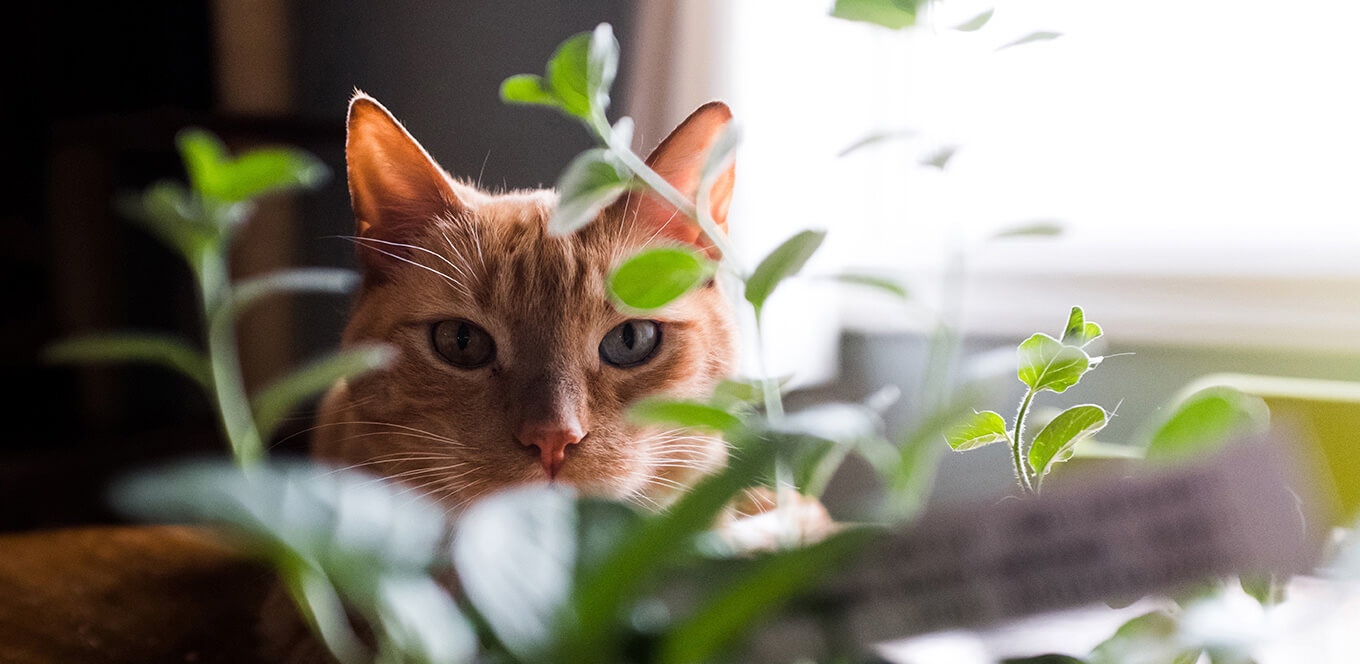
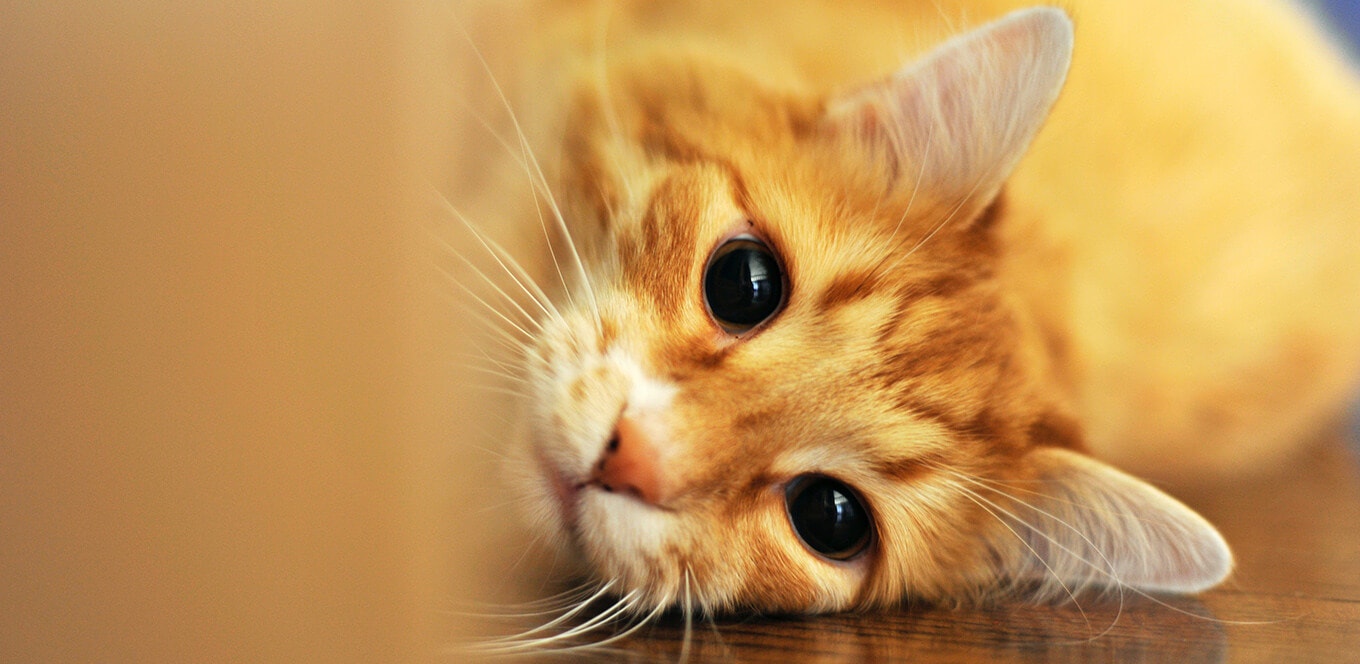
Cats are sensitive to a wide range of allergies. Cats, like people, can be allergic to a variety of foods, drugs, plants, and other things. However, flea, environmental, and/or food allergies are the most common allergies in cats.
Keeping your home clean, using dust-free and unscented cat litter, using flea preventatives regularly, avoiding excessive fragrances, and not smoking in the house can help keep your cat from being allergic.
If your cat suffers from allergies, some of the most frequent allergic reactions will trigger certain behaviors, conditions, and even symptoms like:
It depends on whether your cat has skin or food allergies. If your cat eats nothing but novel food and water for eight to ten weeks, the allergic symptoms in its skin will fade away. But if it is related to food allergies, then you need to find a diet that works for your cat and stick to it.
Most cats with inhalant allergies are allergic to a variety of allergens. Itching may only persist just several weeks at a time during one or two seasons of the year if the number of allergens is low and seasonal. The cat may scratch frequently if there are a lot of allergens or if they are there all year round.

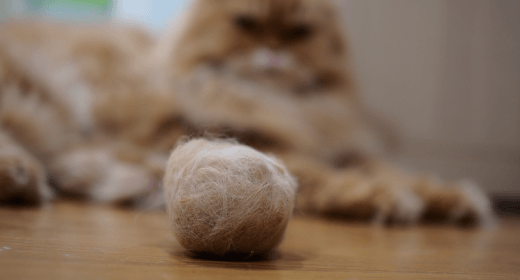
You love your cat. But the sight of watching your cat gag and cough up a hairball is anything but pleasant. Moreover, cat hairball can also cause intestinal blockages, which can lead to serious health issues for your cat.
Cat furball is common, but its seriousness varies from cat to cat. Long-haired breeds, such as Maine Coons and Persians, are more susceptible to developing hairballs. Besides, hairballs are more common in cats who shed excessively or groom themselves obsessively because they swallow a lot of fur.
In fact, you may have noticed that your cat didn't have hairballs when it was younger but developed the habit as it grew older. Cats become better groomers and even better at getting rid of fur from their coats with their tongues, resulting in more hairballs for you to clean up. It is this grooming behavior that is linked with the intake of fur.
Diet can be important in hairball relief for several reasons. The fiber combination of powdered cellulose and beet pulp in IAMS™ hairball formulas help move hair through the digestive tract. IAMS research has shown that cats fed IAMS ProActive Health™ Adult Hairball Care pass 80% more hair in their feces than cats fed a leading premium dry cat food. By helping ingested hair to be passed from the digestive tract, IAMS hairball formulas help reduce the opportunities for hairballs to form. This fiber blend also includes a moderately fermentable component to promote intestinal health. High-quality, animal-based protein and fat, found in IAMS hairball formulas, provide important nutrients for skin and coat health. Maintaining skin and coat health may reduce the risk of excessive shedding, ingestion of hair from grooming, and, consequently, hairball formation.
It's important to treat your cat's lack of appetite, as even a short period of time without food can have a significant influence on your cat's health. A decrease in appetite could suggest that your cat's hairballs have caused an intestinal blockage. It can also be an indication of a range of other issues. But regardless of the underlying cause, it is a problem that must be addressed as soon as possible.

Fatigue and lethargy are also common signs of a range of health problems in cats. They can, however, arise in conjunction with intestinal clogs. If your cat appears lethargic or weak, it may have a hairball blockage and require medical attention.
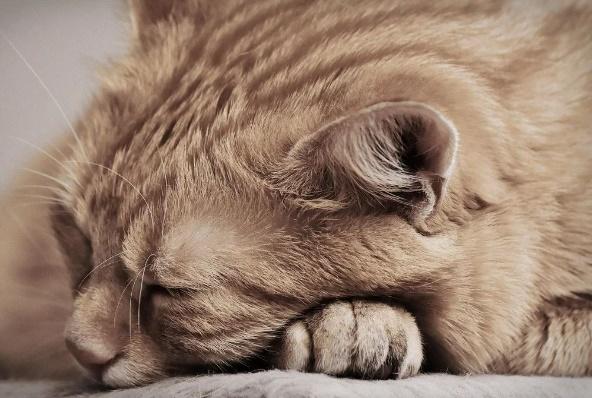
Keep a watch on your cat's litter box if they are vomiting hairballs frequently. Hairballs and constipation are both signs of a hazardous blockage that should be treated by an emergency veterinarian. Constipation in cats can be fatal on its own. Therefore, this is an issue that needs to be addressed correctly to ensure your cat is healthy.

This could indicate that something is extremely wrong with your cat's digestive system, especially if it happens frequently. Cats with frequent diarrhea can quickly get dehydrated, so make sure they're getting enough water. Try boosting their liquid intake with wet food until you can get them to the vet.
If your cat is getting constant hairballs, then you should take your cat for regular grooming. The best way to overcome cat hairball issues is by brushing or combing their fur regularly. This way, less fur will wind up in their stomach as hairballs. It will also be a fun way for you to bond with your cat.
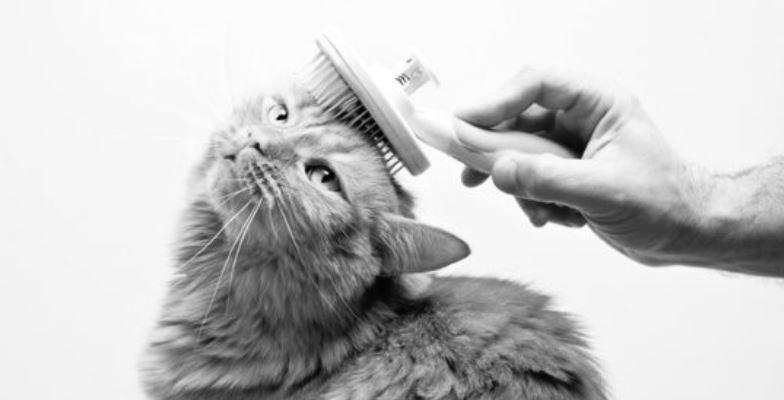
Hairball formula or cat food is another remedy to prevent cat hairball. Hairball-reduction cat diets are now available from any pet food company. These high-fiber compositions are meant to promote the health of your cat's coat, reduce shedding, and help hairballs move through the digestive tract in cats.

There are several cat hairball treatment products available on the market today. The best thing about them is that most of those laxatives are mild that aid in the easy passage of hairballs through the digestive tract.